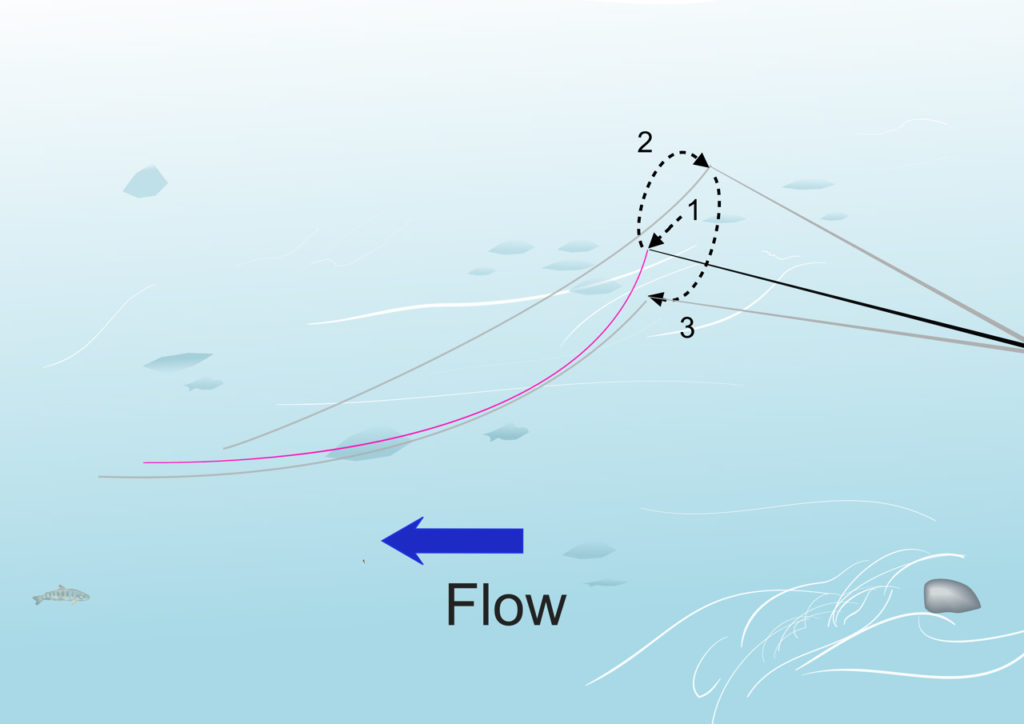Mel Krieger was a warm and charismatic fly-casting teacher. He spread one of my favourite insights on how people learn. Mel said that there were two kinds of pupil: “Poets” and “Engineers”; and it was useless to treat both those groups as if they were the same. An “Engineer” needs to know exactly how it all works. A “Poet” needs to know what it feels like when it is working…

Now, there are examples of diagrams and drills in my email lesson series. They, naturally, give you the strict “how” of all the techniques. But it’s also important to talk about the right attitude to approach things with. And I actually think that having both is important for everyone. I don’t think it is 100% right to think that one type of lesson is for poets and the other type is only for engineers.
So I think it is sometimes useful to think of little “add-on” to Mel’s idea…
Of course, the original idea is a work of genius and clarity. It has provided key breakthroughs for so many students of the tricky physical arts of casting a fly – particularly in the vital early stages. The only thing I want to add is that it can be helpful to realise that it is rare for you to be completely “engineer” or completely “poet”.
In other words, if your mind is a house (go with me on this…) you’re bound to have many different rooms in your head – including one labelled “engineer” and one labelled “poet”. It is not that you only ever spend all your time in the one room. It is more like you use all rooms fairly regularly – but you can still have rooms where you prefer to hang out much of the time if you have a choice.
What I’ve done for this lesson is something that you can apply to all kinds of fly fishing situations (rod & reel/French leader or fixed line/tenkara). Of course, it is particularly useful to tag it onto the series of lessons on tenkara presentation tactics (there are all those named manipulation techniques after all).
When you absorb the lessons (including a free DVD chapter) on Japanese fly “manipulation” tactics in the emails, I think you’ll benefit from a few pointers that I’ve put together below:
1. Don’t use a “death grip” on the rod handle
This is just as true for casting as it is for fly manipulation. Not only is it a fast-track to soft/connective tissue injury, a constant tight grip ruins your fishing. Did you know that good boxers only clench their fist towards the end of each strike? If your hands are squeezed tight the whole time, it stops the rest of your arms/shoulders and everything else working properly (and in boxing that slows down and weakens your punch). Something pretty similar happens in casting and fly manipulation. Being too tight stops you feeling the rod working. That sensitivity (and the automatic micro-adjustments your brain makes without you even realising it) is what takes your fly fishing to the next levels. Don’t believe me? See the next tip…
2. Feeling the rod flex and recover is every bit as important in fly manipulation as it is in casting
If you have movements that are too jerky and violent, we all know that you end up with casting loops that are a pile of junk. The rod overloads (bends too far for the length of line) and then unloads too early and/or with too much gusto. Instead, pay attention to softening your grip a tiny bit after you’ve stopped the rod to let it unload and cast your line. You’ll find (or you know already) that this damps out a lot of the “wobble” in the rod blank and makes your loops smooth. The major skill in fly manipulation is managing that pulsation of the line between “tight” and “controlled slack” in time with a “one, two” beat. Because this involves small hand movements to put a bend in the rod and then let the rod recover – you need to feel everything that the rod is doing. And you can’t do that with a grip like a vice. Start focusing much more on how the rod feels during manipulations and casting.
3. When you are moving the fly using your rod-tip, the slack is the most important thing
Manipulating or “pulsing” a fly (particularly a soft-hackled wet fly, kebari or nymph) usually fools people into focusing on how they pull the fly through the water. Of course this is important – you don’t usually want to yank it clean out of the water for starters! But the biggest differences to your catches probably come from understanding and practising how to feed a controlled amount of slack down the line from your high rod-tip position. Think of it a little bit like the feeling of pulling on a rowing machine in the gym (or if you are more sensible, watching someone else doing that!). Yes, the smooth pull is important, but you’ve got to feed that slack back down into the fly-wheel mechanism with some control too! Feed it back too early, with too much slack and the jerk when you lean into the next stroke as the spare slack snaps tight to the mechanism is unpleasant (and not very efficient). If you don’t feed it all back in time, then you’ve nothing to pull on your next stroke.
It’s just the same for fly manipulations.
At the end of the day, even if you forget all the little details in these tips, focusing on increasing your attention to the sensation of the rod and line working together will pay off big time. That sensation of feedback (and what your brain can then do with it) is a major pathway to easier, productive and enjoyable fishing.
And there are both mechanical and poetic reasons for this.
Paul
